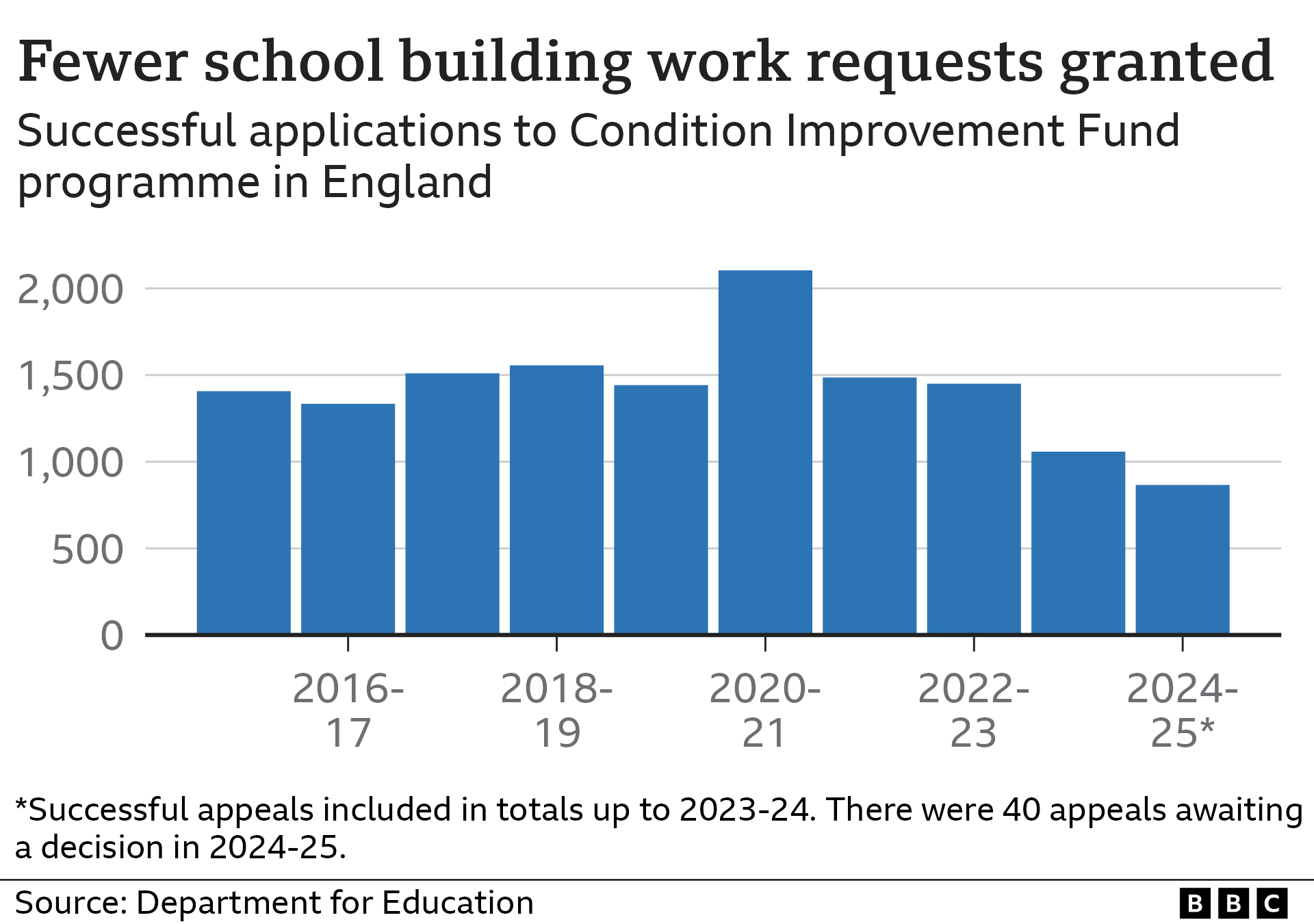Successful school building bids drop to record low

- Published
The government has approved the lowest number of school building work requests since its funding system began, despite growing concern about the state of schools, BBC analysis shows.
Money has been allocated for only 866 projects at schools and colleges in England next year through the Condition Improvement Fund (CIF) - down from 1,058 this year.
One teaching union said it "beggars belief".
The Department for Education (DfE) said it was spending another £1.8bn to refurbish school buildings, including through CIF, and has allocated more than £17bn since 2015.
Schools in England receive funding in different ways for building works. Those run by local authorities or large academy trusts are allocated a set amount of money each year.
But those that are part of small academy trusts and voluntary-aided bodies, as well as sixth-form colleges, have to apply for funding on a case-by-case basis through the CIF.
Around 500 schools are also being rebuilt or refurbished over a decade as part of the School Rebuilding Programme (SRP).

New DfE data suggests that the number of projects to receive money through CIF has fallen below 1,000 for the first time since funds were first allocated in 2015.
The government has announced that "just under £450m" has been allocated for the 866 projects across 733 schools in 2024/25.
However, that number could still go up or down because 40 of those projects are still pending, and schools can appeal if their projects are rejected.
A total of £456m was allocated in 2023/24.
Requests for "urgent" fire-safety and roofing works were among the approved bids for 2024/25 - with some schools saying they were essential to prevent closures.
The condition of schools has been thrust into the spotlight since a National Audit Office report last year estimated 700,000 children were being taught in unsafe or ageing school buildings in England.
Many schools with a dangerous type of concrete - reinforced autoclaved aerated concrete (Raac) - were then told to close days before the start of this school year, and continue to face disruption.
Last week, schools told the BBC they feared they were "stuck" with leaking roofs and decades-old temporary classrooms, after the final places in the SRP were taken by those with dangerous concrete.
'Our school has been crumbling for 20 years'
- Published21 March 2024
Raac-affected pupils 'kissing top grades goodbye'
- Published3 January 2024
Paul Whiteman, general secretary of the NAHT union, said it "beggars belief that the government is pressing ahead with the lowest number of school building works in almost 10 years".
He called on the government to invest an extra £4.4bn annually to upgrade school buildings.
Geoff Barton, general secretary of the Association of School and College Leaders, said the government was "simply not putting sufficient money into capital funding", adding: "It is not only damaging to the pupils and staff who are working in these conditions but an entirely false economy because the cost of patching up the school estate will just get more and more onerous and less affordable".
Tim Warneford, whose consultancy helps schools with funding bids, said the latest figures were "a kick in the teeth to those schools" that had put in applications but were turned down.
The government says its funds are allocated based on condition surveys it has carried out.
Announcing the £1.8bn on Tuesday, Education Secretary Gillian Keegan said the government was "continuing to invest in the school estate, so all children are taught in the best classrooms for generations to come".
Additional reporting by Masuma Ahmed.